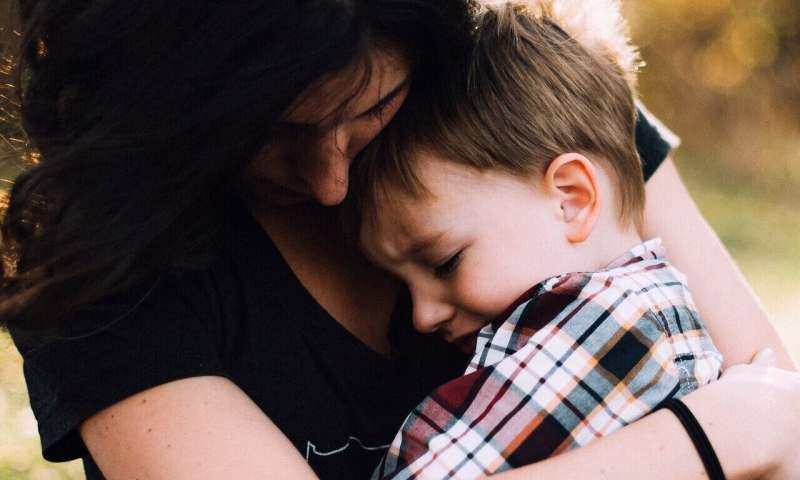
Family separations in which child custody is in question can get complicated, painful, and contentious. But some of these families also deal with an additional challenge: parental alienation, in which one parental figure has waged a psychological campaign to, baselessly, turn a child against the other parent.
Colorado State University Associate Professor of Psychology Jennifer Harman and others, have researched parental alienation and its effects for years, and explain that it is different from estrangement. An alienated child will, in moderate to severe cases, unequivocally and unjustifiably reject the targeted parent without true cause. The scientifically determined phenomenon has very real consequences not just to the other parent (more than 40% of parents currently being moderately or severely alienated have considered suicide in the past year), but also to the children, who frequently have long-term psychological challenges (including anger or a lack of empathy).
But there have also been countervailing arguments claiming that parental alienation is frequently misused to ignore or override claims of abuse, or that allegations of alienation lead to a gender bias against women as courts determine child custody.
Harman and her coauthor, forensic psychologist and attorney Demosthenes Lorandos, wanted to investigate some of these claims. To do so, they designed a rigorous, open science study to assess how parental alienation allegations were impacting courts’ decisions around child custody. Their results were published online Dec. 14 in Psychology, Public Policy & Law, a journal of the American Psychological Association.
Questioning questionable conclusions
Prompting the new study was a 2019 assertion from a legal scholar who claimed that she and her team had found empirical evidence that claims of parental alienation were being used to ignore allegations of abuse, frequently putting the children into the care of potential abusers—and that it was also leading to women being more likely to lose custody. The researchers were also concerned that this new work was being cited frequently in arguments in the U.S. and abroad for policies and laws proposing to ignore parental alienation in child custody cases.
“That was alarming,” Harman said. What worried them even more was that the legal team’s report did not appear in a peer-reviewed research journal and lacked transparency as to their methodology and data, even when Harman’s team requested more information. “The more we dug into it, the worse it looked,” she said.
So Harman and Lorandos figured, “let’s give it a real test, using scientific, transparent methods, and see if we find the same results,” Harman said. “Good science requires replication. And you should never try to change policy based on one study, let alone a methodologically flawed one.”
They knew it is too important of an issue to leave to assertions based on unclear and questionable research practices. “We have families and children’s wellbeing at stake,” she added.
Clearing the way for sound science
Before they began data coding and analysis, Harman and Lorandos submitted their hypotheses and methods on Open Science Framework, an open web-based platform that supports research and collaboration. “We wanted to do it the right way and in a way that was transparent,” Harman said. “All of our data is up there, and anybody will be able to look at it.”
After having 19 research assistants, all blind to the study’s hypothesis, examine 967 appellate-level legal case reports where parental alienation was found or alleged to have occurred, “we didn’t find any support for what she’s claiming. In fact, we found the opposite,” Harman said. In other words, they found that parental alienation claims were not being used to override allegations of abuse.
The authors believe this is good news, and indicates that the systems to protect children have, in fact, been working well. They found, for example, that those who were engaged in alienating a child from another parent were given less parenting time. And, on the other side of the coin, if a parent alleged they were the victim of an alienation campaign, but their accusation wasn’t found by an expert to be credible, they weren’t more likely to get more parenting time.
Gender also didn’t seem to play a role in custody decisions in which alienation was alleged. And only in about a dozen of the nearly 1,000 custody cases studied did courts find the parental alienation more egregious than a past suspicion of other abuse that they awarded custody to the latter caregiver. The researchers did not find any evidence that children were placed in the custody of actively abusive parents.
“The heartening thing is that the court does not seem to be taking any allegation of parental alienation or abuse lightly,” Harman said. “Our data proves that the courts are saying ‘This is serious, and this is affecting children, and we should protect these children from this kind of abuse.'”
Unfortunately, the 2019 assertion to the contrary is still getting traction, even though “the data does not support this at all,” Harman said. She hopes their new, robust study will help turn the tide back toward solid science in this area of research.
Source: Read Full Article
